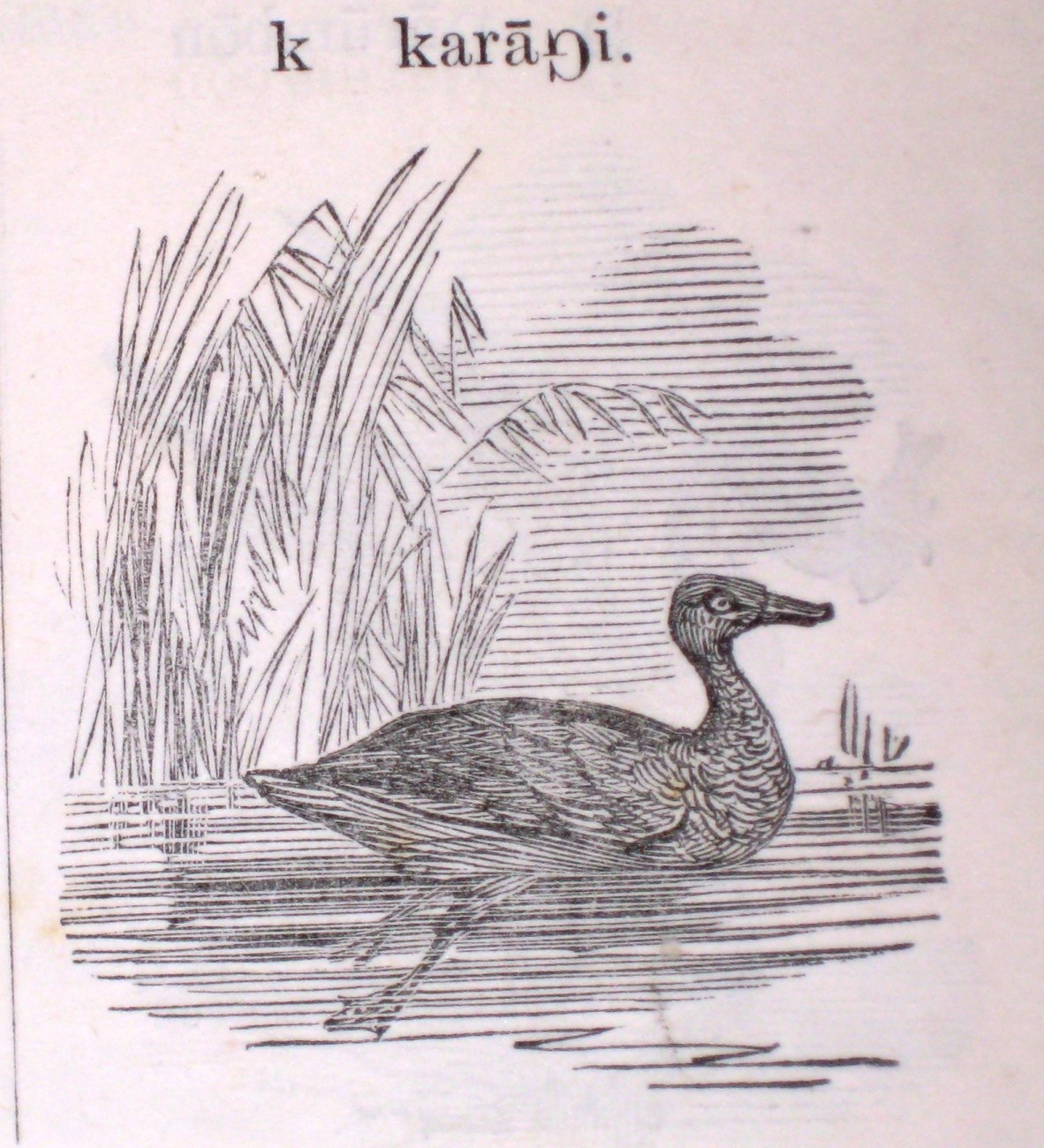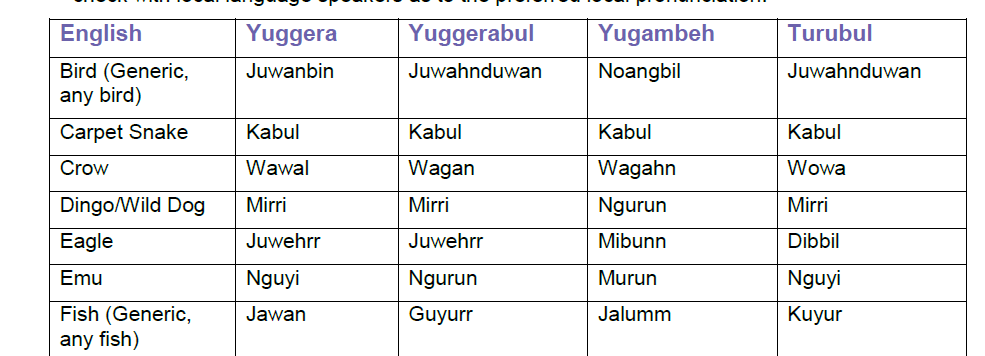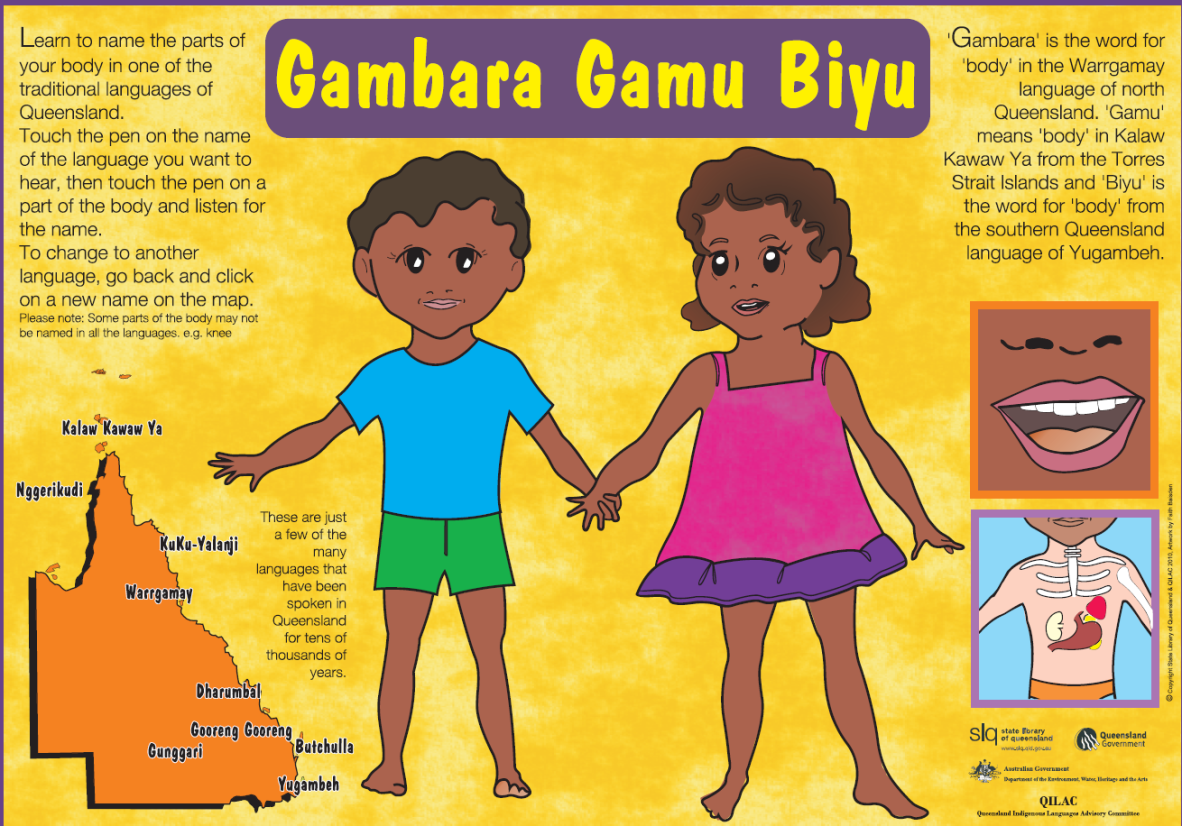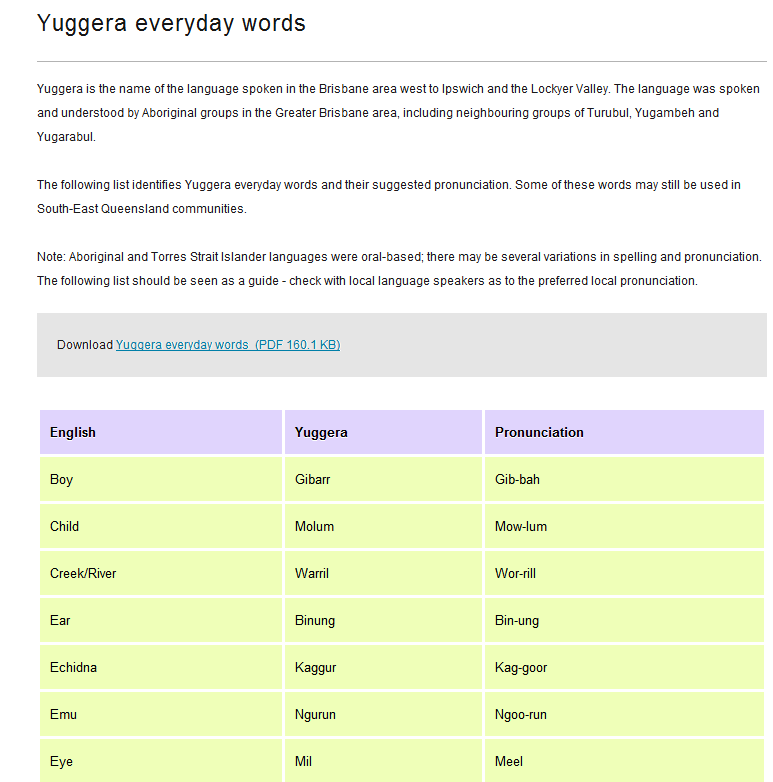State Library often gets requests about Aboriginal words for particular everyday objects; or a request for an Aboriginal name for a room, building, etc.

Karangi = wild duck (Kamilaroi)
For example, a client may be writing a children's story and sends an inquiry such as "what is the local word for 'wild duck' in Kamilaroi?"
Thanks to having Ridley's (1875) Kamilaroi and Other Australian Languages text in our collection, we can find the word for them. But this may not always be that easy or efficient, so State Library is gradually adding wordlists online for everyday words in a number of Queensland Aboriginal or Torres Strait Islander languages. Animals is a popular request, so we have put together a wordlist from Brisbane area languages that will also be incorporated into a language activity during NAIDOC Week at Musgrave Park's Family Day (South Brisbane).

Animals of Brisbane Area wordlist
There are already a number of languages featured in the Gamburu Gamu Biyu chart which is available in selected Public Libraries and IKCs as well as corresponding online wordlists. The first set of words will feature more parts of the body words from South-East Queensland and be extended to include other Queensland languages. These selections of words can then be used for resources such as flash cards in schools or communities as well as provide basic language content for language activities such as "Heads, Shoulders, Knees and Toes" and "Hokey Pokey". Several IKCs have already built upon these body charts creating their own teaching/learning resources for use in their communities.

Other themes may include animals, plants, family names, place-names, etc. State Library may also explore the idea of simple sentences and phrases to extend the conversation and build upon the 'say g'day' initiative.

We also encourage community groups, language workers, IKCs, etc. to add to these lists and share with communities and record language words and phrases to add to the language knowledge of State Library collections.
Further Information
The following selection of items from the State Library collections have word lists from Queensland's Aboriginal and Torres Strait Islander languages.
GSD 499.15 2006 Gudjal language pocket dictionary: Gudjal to English and English to Gudjal : A wordlist of the Gudjal language as spoken by the Gudjal people from the Mt Garnet, Cashmere and Herbert areas and upper Clark and east to Charters Towers, Mount Sturgeon, Mount Emu Plains, Lolworth and Reedy Springs.
Q 994.38 CAM Reports of the Cambridge Anthropological Expedition to Torres Straits.
P499.1503 yuw Yuwaalaraay/Gamilaraay wordlist.
499.15 2004 Dictionary of the Butchulla language.
G 499.15 1997 Lardil dictionary: a vocabulary of the language of the Lardil people, Mornington Island, Gulf of Carpentaria, Queensland : with English-Lardil finder list.
JUVQ 499.15 PIT Pitta Pitta : pictorial dictionary.
HCF 499.15 CON Languages of the Condamine.
Q499.15 KUK Kuku-Yalanji dictionary.
Q499.1503 RAY Dictionary of Torres Strait languages.
G 499.15 1986 Dictionary and source book of the Wik-Mungkan language.
FILM 0714 Reports to the Commissioner of Police and others, on Queensland aboriginal peoples 1898-1903.
OM65-58 William Hanlon Papers Undated.
REFJ 499.15 wat “Vocabularies of four representative tribes of South Eastern Queensland”; supplement to the Journal of the Royal Geographical Society of Australasia (Queensland), No. 34, Vol XLVIII.
OM64-17 Archibald Meston Papers.
State Library webpages
State Library Indigenous Languages Resources - Word lists webpage: www.slq.qld.gov.au/resources/atsi/languages/word-lists
State Library Indigenous languages Resources - Body Chart word lists Gamburu Gamu Biyu: www.slq.qld.gov.au/resources/atsi/languages/resources
External Websites
ABC Open What's your story: Welcome to Warrgamay Country
AIATSIS Online Exhibition: Collectors of Words
The Ndadjoni (Far North Queensland): Ngadjon Words
Yugambeh Museum: Language word lists
Yuwaalaraay Language Program: Yuwaalaraay Gaay Gamilaraay Garay
Comments
Your email address will not be published.
We welcome relevant, respectful comments.